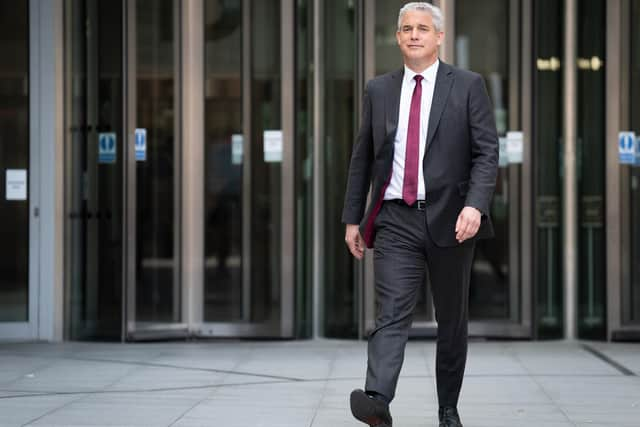After-effects of pandemic causing delays for NHS patients: Steve Barclay
My motivation as Secretary of State is clear: to enable people to access the right care faster.
Because when for example I think of cancer treatment, I am thinking of the constituent in her 20s with a young daughter who was told not to worry about her symptoms, only to later find that the cancer had spread.
Advertisement
Hide AdAdvertisement
Hide AdI challenge myself as to what more I can do in this job to get the right treatment to people like her as fast as possible.


That challenge sits at the heart of our three recovery plans.
And whether it’s electives, urgent and emergency care (UEC) or primary care, patients are - rightly - demanding improvements.
They also want to see care that is better joined up.
And with our integrated care systems (ICSs) now taking proper statutory form, we are moving in the right direction.
Advertisement
Hide AdAdvertisement
Hide AdLast August, I visited the Jean Bishop Integrated Care Centre in Hull which is one of a number of fantastic examples of how health and social care can come together under one roof.
NHS staff, care workers and volunteers are working to care for local people, including keeping thousands of frail and elderly patients out of hospital and helping them live at home with the independence and dignity they deserve.
And with ICSs now fully operational, we can make this type of approach more commonplace across the country.
Despite the difficulties we face, there are signs of progress.
Advertisement
Hide AdAdvertisement
Hide AdOn electives we’ve virtually eliminated waits of over 2 years, and we’ve reduced 18 month waits by over 90 per cent.
But we know the overall number remains high.
This has a material impact, like, for example, for the self-employed worker who is waiting for their operation before they return to work.
This is why we are taking further action to expand patient choice and making information on patient choice much more transparent.
On urgent and emergency care, ambulance handover delays have improved. But again we know it has been particularly difficult in the past few days.
Advertisement
Hide AdAdvertisement
Hide AdIn primary care, more appointments are being delivered by GPs and the wider clinical team, with on average an extra 20 per practice per day. But demand remains high.
We’ve also made particular progress in areas like breast cancer and research this week shows that most women diagnosed in England will beat the disease.
Now we must build on this, by getting people potentially life-saving tests, checks and scans more quickly and bringing those checks closer to people.
Community Diagnostics Centres are an example of this.
There are now 108 in operation, and they’ve delivered more than four million tests, checks and scans and they will help us build on these hard-won gains in the years to come.
This is an edited version of a speech given by Health Secretary Steve Barclay to the NHS Confed Expo